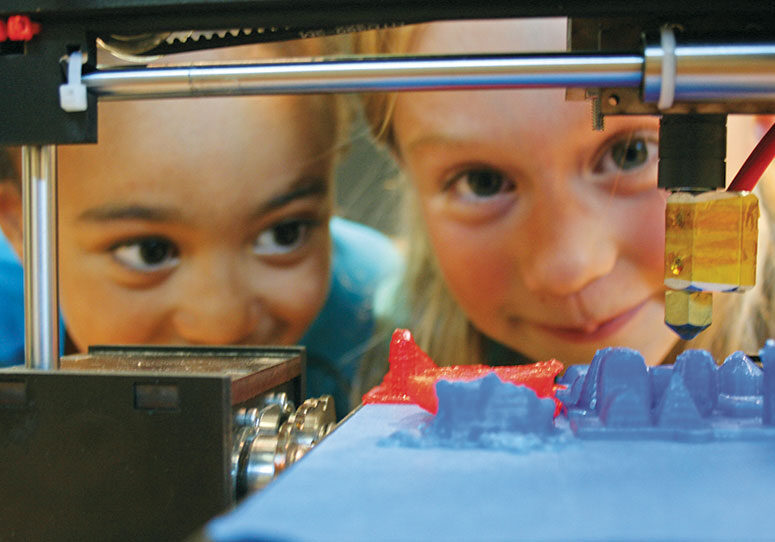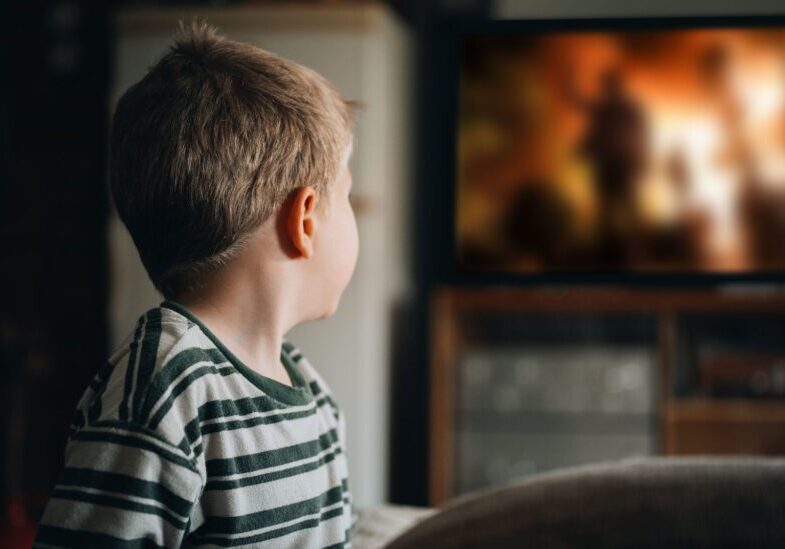
Think back to third grade. It’s spelling-test day, and the word is “money.” Would that be “m-o-n-i-e”? Maybe, if you just peeked a bit over your friend’s shoulder and took a look . . . he’s writing the word now … there it is! “Monny!”
OK, you never copied someone else’s paper. But maybe your best buddy slipped you a note during history class with the date of the Spanish-American War (1898) or the Battle of Gettysburg (1863).
The truth is, just about everyone, at some point in their academic life, has cheated, according to psychologist and author Kenneth Shore, Ph.D. Most of us never become career criminals, a point that’s helpful to keep in mind should you discover your elementary- or middle-school-age child has been cheating in school.
“It’s not uncommon for grade-school kids to engage in cheating, even though we think of this as something older kids might do,” says Shore, whose books include Special Kids Problem Solver and Elementary Teacher’s Discipline Problem Solver. “They may not be very crafty about it and do things that are patently obvious to the teacher,” he says … eye-catching things like copying someone’s essay word for word, or asking another student – in an audible whisper – for an answer during a quiz.
It’s not just that younger kids are naïve and unseasoned when it comes to cheating. “Some of them don’t totally understand that it’s dishonest, or why it is,” says Terra Holmgren, an elementary school counselor.
In middle school, kids get savvy. Cheating becomes more calculated when students have technology on their side, according to Wendy Lawrence, former middle school head in Washington. “A kid doesn’t need to pass a note or look over a shoulder when cell phones are available. A master texter, as most kids today are, can easily text without taking his phone out of his pocket,” says Lawrence.
By high school, cheating is widespread and on the rise, according to a 2008 study “The Ethics of American Youth,” conducted by the Josephson Institute of Ethics, a partnership of educational and youth organizations. Out of the 30,000 United States high school students surveyed, 64 percent had cheated on a test during the year, up from 60 percent in 2006. What’s more, 36 percent reported they’d used the Internet to plagiarize.
Take It Seriously
Parents and teachers should take elementary school cheating seriously, even if the kids are cheating in unsophisticated ways, and even if “everyone” is doing it. “It’s important that a pattern doesn’t develop, and that kids don’t rely on cheating as a coping mechanism,” says Holmgren. “It’s good to catch this early.”
It’s also good to view grade school cheating as a “teachable moment.”
“It’s a chance to talk to your children about right and wrong,” suggests Holmgren: “What do they think about cheating? Why is it wrong? Why do kids do it?”
Why do kids cheat? Holmgren says it’s because they fear falling behind: “Some feel overwhelmed or pressured to do well. Others have learning problems that make it harder for them to keep up.” Parents should take a close look at the way they interact with their kids, suggests Shore. “It’s possible the pressure their child feels is coming from them.”
Elementary school teachers use a variety of methods to discourage cheating. Some instruct students to move their desks farther apart when taking tests; others ask students to cover their papers as they work. Many teachers make cheating a learning topic and discuss ethical issues, such as the value of earning a grade honestly.
How to Handle Cheating
Let’s say you and your 10-year-old daughter are playing a board game at home and you notice her taking some, well, liberties with the rules. That might be a good time to talk about values such as honesty, fairness and responsibility – what they mean and why they’re important.
But let’s say that, even after the well-intended talks, your daughter turns in a book report that is really good. So good, in fact, that her teacher thinks she recalls seeing something a lot like it on the Barnes & Noble website.
What does the teacher do? Typically, when a teacher suspects a student has been cheating, he or she deals with it at school. “Cheating, like most mistakes, isn’t a black-and-white issue,” says Lawrence. “Consequences at the middle-school level range from being asked to redo a paper, to earning a zero, to being suspended from school.”
If your young child or middle schooler is caught cheating, should you dole out an additional punishment at home? Probably not, says Shore. “Parents don’t need to add another penalty layer.”
So stay cool. Don’t ignore the issue, but try not to overreact. “Don’t assume the child is on the verge of some major psychological problem,” suggests Shore.
Let your child know you’re disappointed, but follow that up with a calm, measured discussion, which includes questions like this: “Would you feel better getting a good grade because you earned it, or because you copied someone’s paper?” “How would you feel if you found out that (name a hero or role model) had cheated?”
At the middle school level, parents should look for the reasons behind the cheating, says Lawrence. Was this a one-time adolescent mistake or a call for help from a stressed-out kid?
“Showing your child that you support the school’s consequences but also truly care how she is doing will send a clear message that the cheating was wrong and that you are invested in helping her move past it,” Lawrence says. “Learning why your child cheated should give you some tools to help, whether that means trimming down the after-school activity list, enlisting the help of a tutor, or simply having a talk about the importance of honesty.”
Comment Policy: All viewpoints are welcome, but comments should remain relevant. Personal attacks, profanity, and aggressive behavior are not allowed. No spam, advertising, or promoting of products/services. Please, only use your real name and limit the amount of links submitted in your comment.
You Might Also Like...

Schools are Starting to Teach Social Emotional Learning – it Helps at Home, Too
More Goldfish!” my 5-year-old demands. I summon all my patience. “Can you try that again?” “I’m hungry!” I take a long blink. “Honey? Can you—” Her face is still beet […]
Mi Escuelita Maya Preschool & Children’s Performing Arts Program – A Place of Learning and Inspiration
In a setting best described as welcoming and warm, where diversity is honored and creativity abounds, children go about the business of learning with great enthusiasm. Smiling teachers clearly are […]

Whittenberg Country School – An Old-Fashioned School In The 21st Century
Zach Whitten’s day-to-day operations at Whittenberg Country School look like a scene from Louisa May Alcott’s Jo’s Boys. Every school morning is awash with an exciting spectrum of possibilities for […]

Mini Maker Faires Set To Inspire & Amaze in Redding & Ashland
More than a decade ago, Dale Dougherty and Sherry Huss noted that our increasingly consumer-focused society often disregards the fundamental human activity of creating. From this notion came the idea […]



